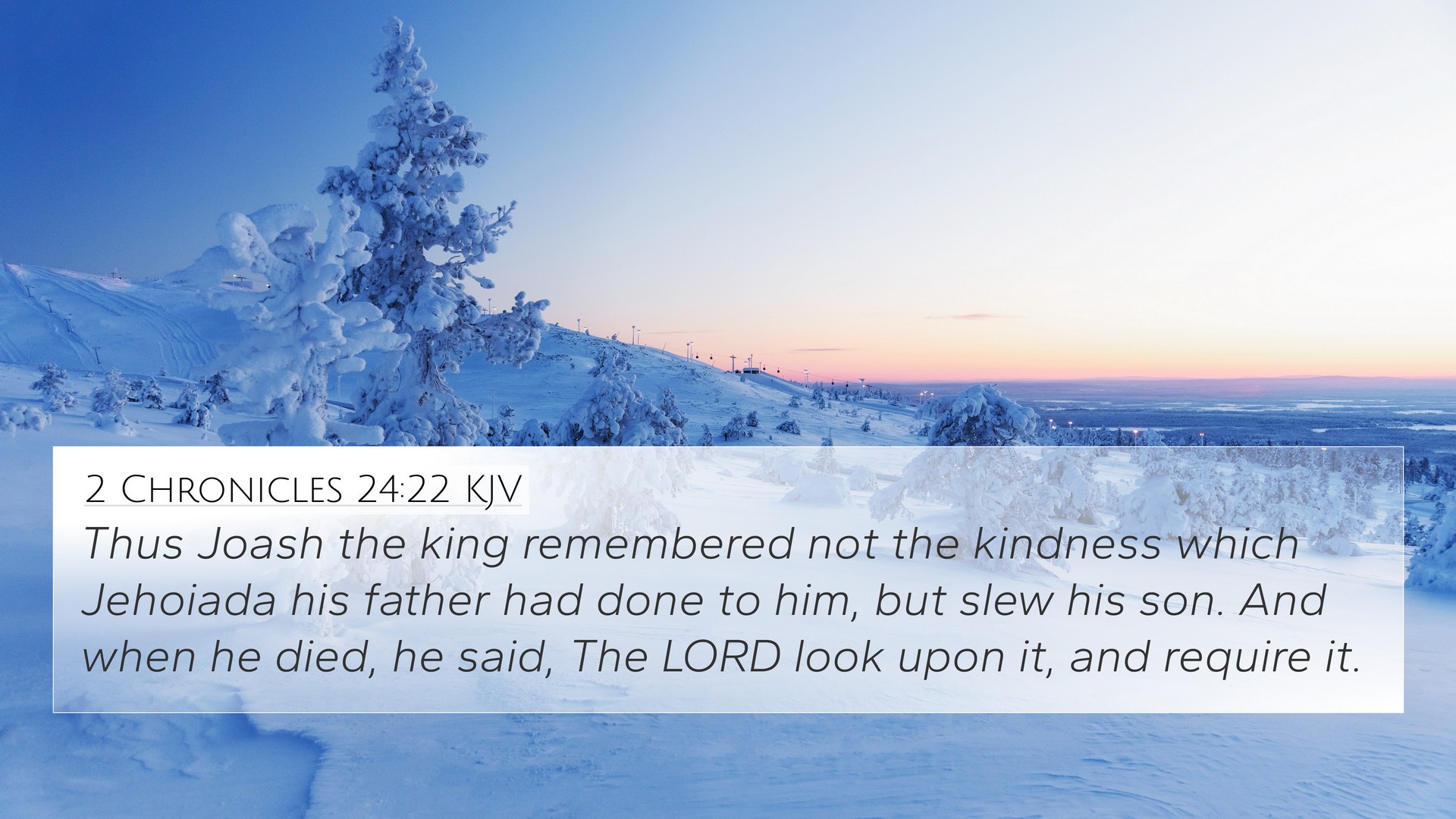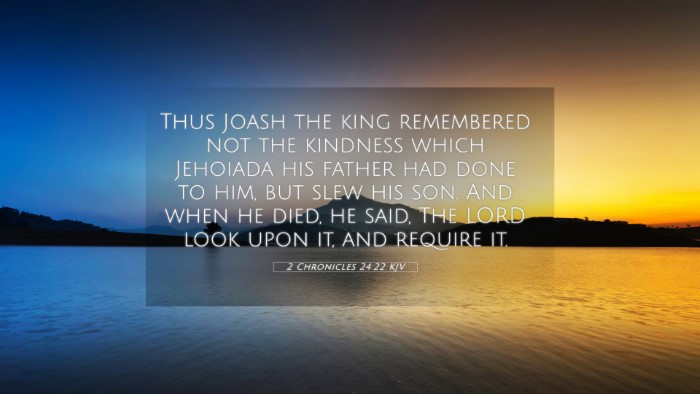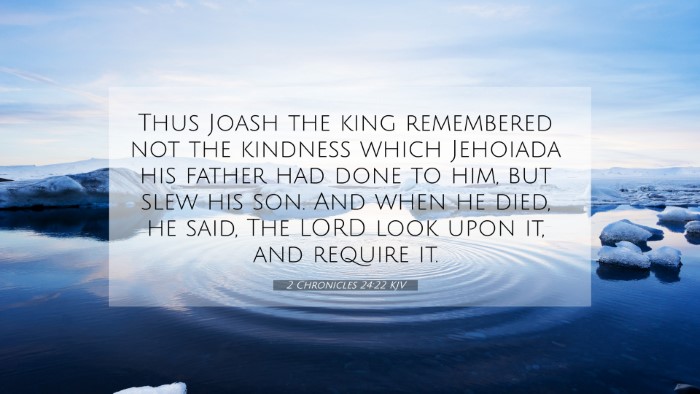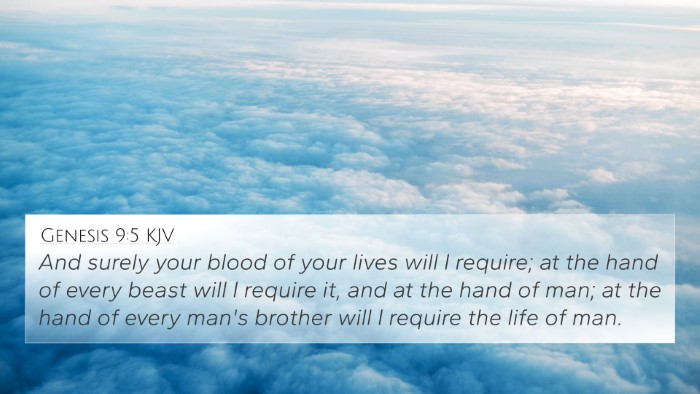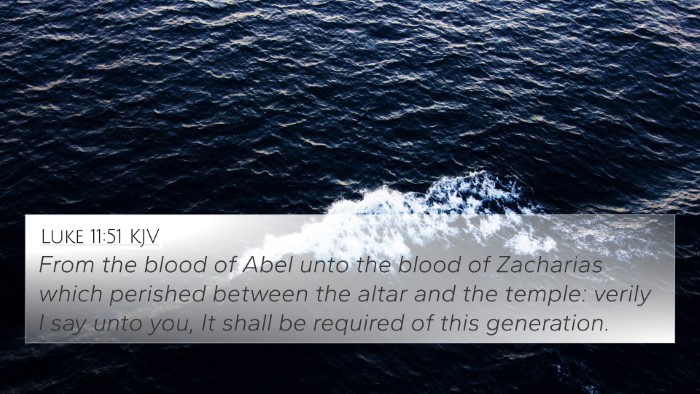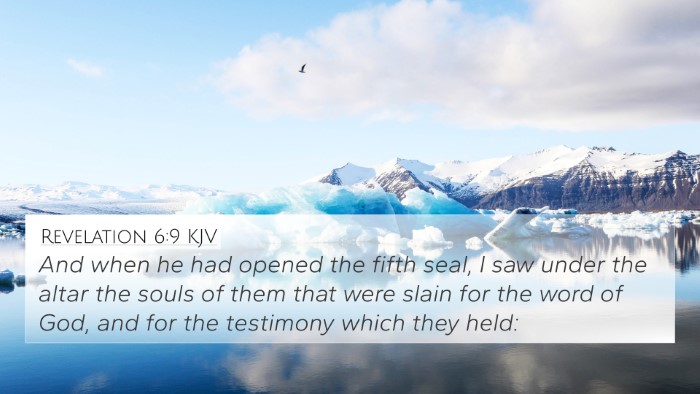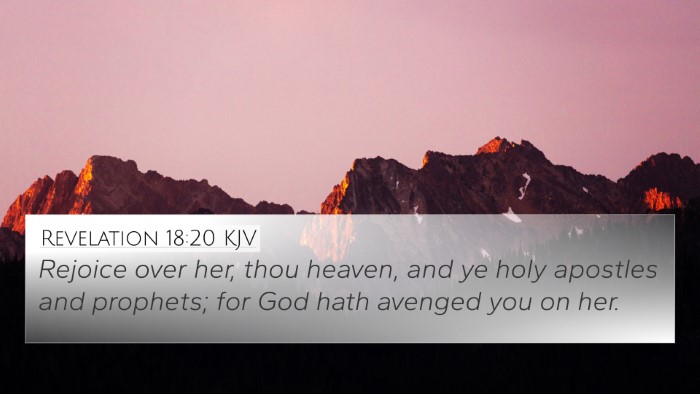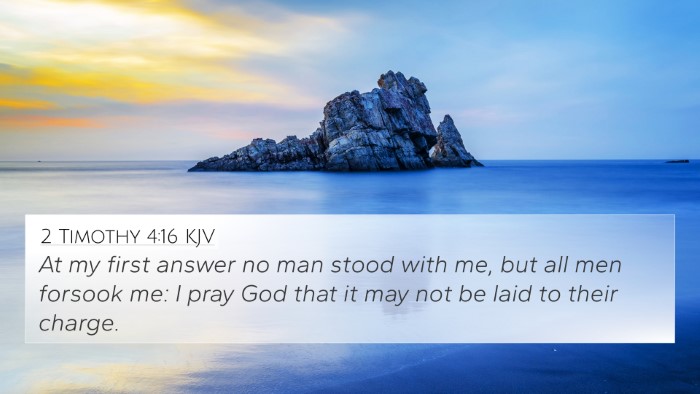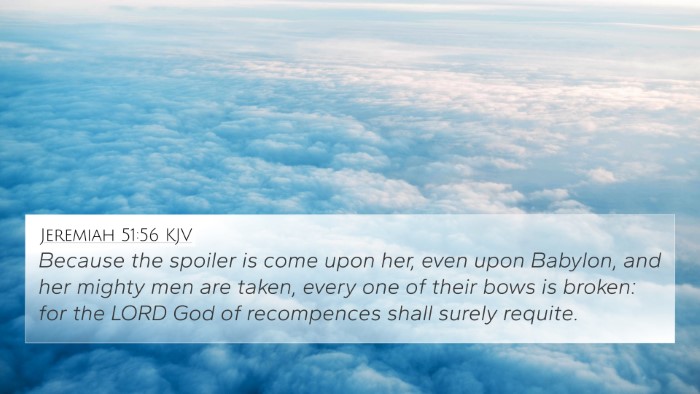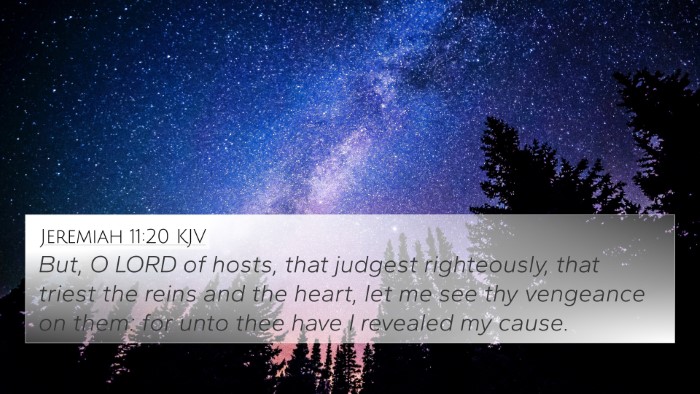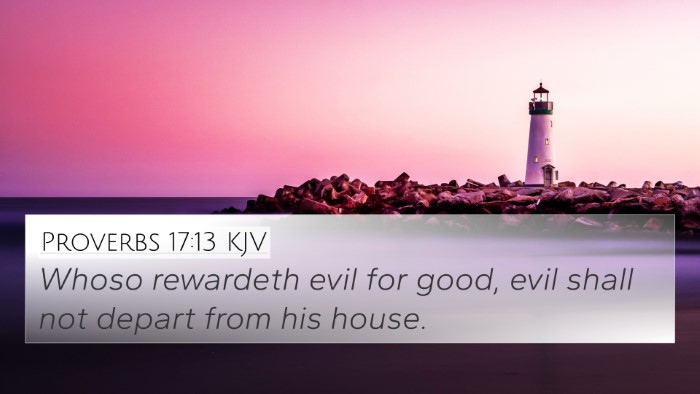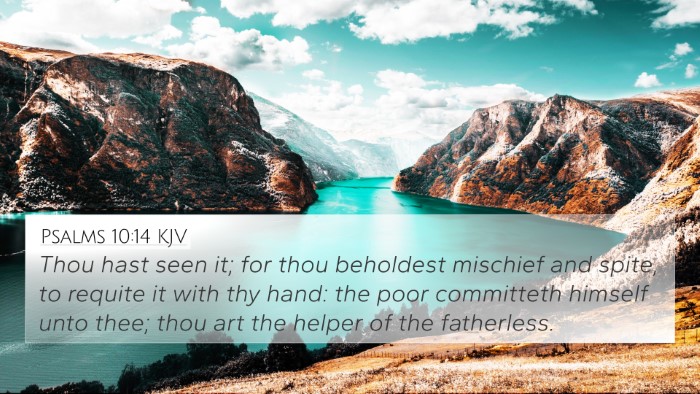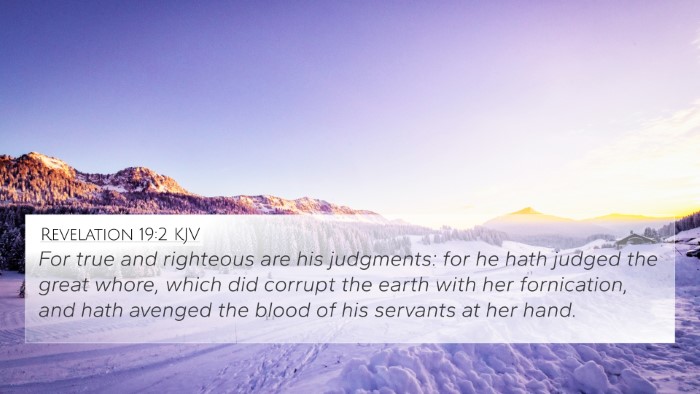Understanding 2 Chronicles 24:22
This verse encapsulates a powerful message about the consequences of betrayal and the importance of faithfulness in service to God. Insights derived from various public domain commentaries will elucidate its meaning.
Verse Text
2 Chronicles 24:22 (KJV): "Thus Joash the king remembered not the kindness which Jehoiada, his father, had done to him, but slew his son. And when he died, he said, The Lord look upon it, and require it."
Commentary Insights
-
Matthew Henry:
Matthew Henry emphasizes the ingratitude shown by Joash towards Jehoiada, highlighting that this act of violence against Jehoiada's son, Zechariah, was a betrayal of the kindness shown to him during his youth. Zechariah, the son of Jehoiada, speaks truth to power, warning the people to turn back to God, signifying the tragedy that befalls those who reject divine counsel.
-
Albert Barnes:
Barnes remarks that Joash's failure to recognize Jehoiada's contributions resulted in a grave moral failure. The slaying of Zechariah represents a pivotal moment where the king turns away from the covenantal obligations established by Jehoiada. His final words imply a plea for divine justice, indicating Joash's awareness of the seriousness of his actions yet his inability to repent.
-
Adam Clarke:
Clarke provides insight into the characterization of Joash as one who, having once been faithful, sways to disloyalty under the influence of others. The murder of Zechariah is not only an act of personal ambition but also serves as a national tragedy, reflecting broader detachment from God’s ways.
Thematic Connections
The themes of betrayal, ingratitude, and divine retribution resonate throughout the Bible, linking 2 Chronicles 24:22 to numerous other scriptures that deal with similar ethical and theological issues.
Related Bible Cross-References
- 2 Kings 12:2: Joash began to reign and did right in the sight of the Lord while Jehoiada was alive.
- Matthew 23:35: Zechariah is cited as a martyr for God's messengers, reinforcing the themes of loyalty and suffering for righteousness.
- 1 Chronicles 28:9: Connects to the importance of knowing and serving God faithfully, reflecting on Joash’s failure.
- Proverbs 14:34: Righteousness exalts a nation; sin is a reproach to any people, similar to Joash’s actions leading to Judah’s downfall.
- Luke 11:51: Jesus refers to the blood of Abel to Zechariah, drawing parallels between innocent bloodshed and its consequences.
- Galatians 6:7: A reminder that God will not be mocked; reaping what you sow connects with Joash’s eventual downfall.
- Jeremiah 22:3: Instructions about executing justice mirror the failure of Joash to maintain righteousness.
Inter-Biblical Dialogue
The tragic story of Joash serves as a cautionary tale for readers about the need for steadfastness in faith and recognizing those who support us in our journey. Several connections between Bible verses reinforce this caution.
Numerous Cross-References to Consider
- Explore the Bible concordance to analyze themes of betrayal.
- Use a Bible reference resource to find verses relating to kingly duties.
- Look into thematic Bible verse connections that signify covenant relationships.
- Conduct a cross-reference Bible study to delve deeper into stories of faithfulness and its consequences.
- Engage in cross-referencing Bible study methods to compare the outcomes of different kings in the Old Testament.
Conclusion
2 Chronicles 24:22 serves as both a historical account and a spiritual lesson on the importance of faithfulness and the dire consequences of turning away from God. The combined insights of commentaries and the interconnections with other biblical texts enrich understanding and provide a framework for deeper exploration of biblical themes.
